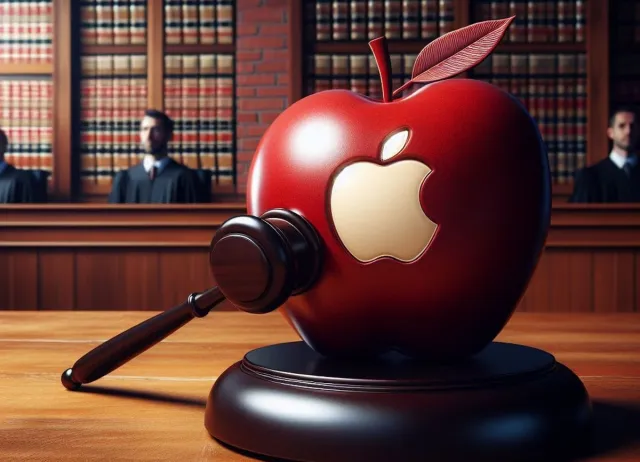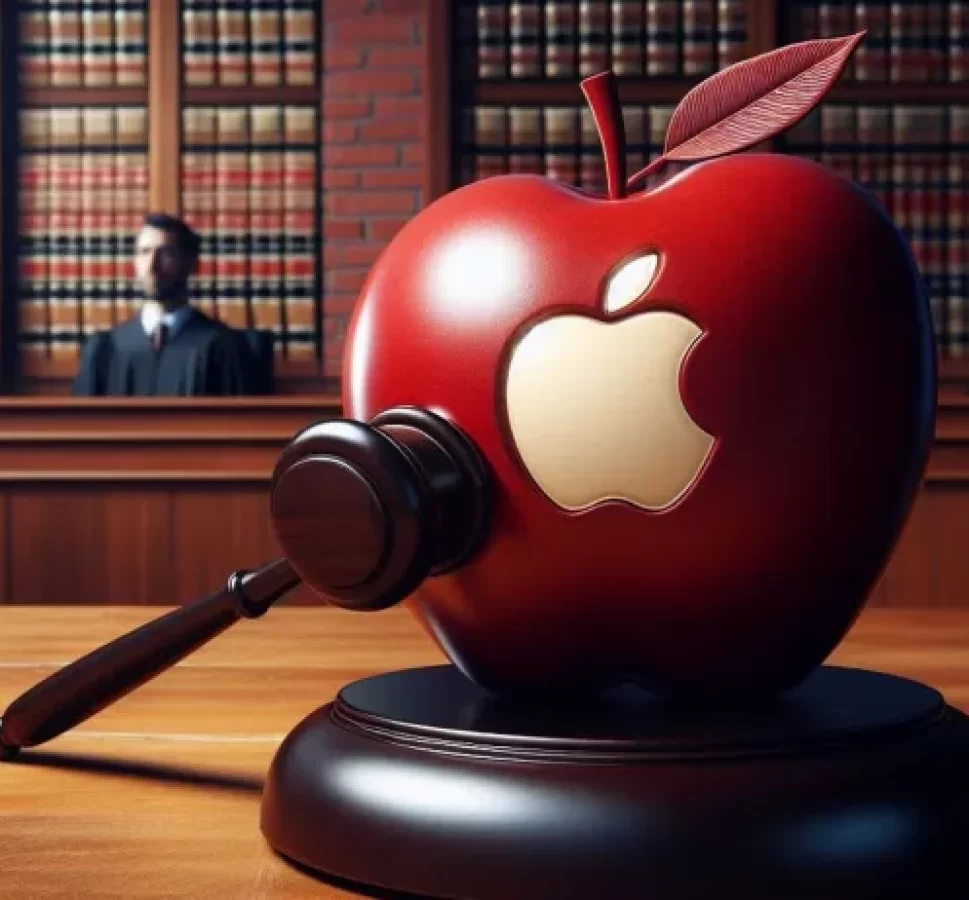
Apple has been accused of monopolising the smartphone market in a US antitrust lawsuit. Here is what we know.
The US government has filed a landmark antitrust lawsuit against Apple, in which it accuses the tech giant of maintaining a “broad, sustained and illegal” monopoly over the smartphone market.
Here is what we know about the case and what might happen next:
Why is Apple being sued?
Apple is the largest of the four main tech giants, Amazon, Apple, Meta and Google, all of which have market capitalisations of more than a trillion dollars. All four have been investigated by regulators in the United States and Europe in recent years following complaints that they are monopolising the tech market by stifling competition.
Apple, the highest-valued publicly listed organisation in the world, is the “test case” for the US government’s legal challenge.
“We allege that Apple has maintained monopoly power in the smartphone market, not simply by staying ahead of the competition on the merits, but by violating federal antitrust law,” Attorney General Merrick Garland told a news conference.
“If left unchallenged, Apple will only continue to strengthen its smartphone monopoly. The Justice Department will vigorously enforce antitrust laws that protect consumers from higher prices and fewer choices,” he added.
The US government argues that Apple “undermines apps, products and services that would otherwise make users less reliant on the iPhone”.
Garland also noted that Apple’s net income “exceeds the individual GDP of more than 100 countries”. He said this is a result of the iPhone’s success. “Apple’s share of the entire US smartphone market exceeds 65 percent,” he added.
What are the main allegations put forth by the Department of Justice?
In its legal challenge, lodged in federal court in New Jersey, the Department of Justice alleges that Apple is illegally preventing competition by restricting access to its hardware and software.
The 88-page lawsuit, filed in New Jersey federal court, listed five areas in which Apple allegedly abuses its power.
- Blocking innovative apps: The lawsuit says Apple has disrupted the development of apps that could make it “easier for users to switch between competing platforms”.
- Suppressing mobile cloud streaming services: It also alleges that the company has prevented the development of cloud streaming apps that would allow consumers to enjoy high-quality video games and other cloud-based applications without having to pay for expensive smartphone hardware.
- Cross-platform messaging apps: Messages between iPhone and Android phones can be less secure as iMessage does not allow the exchange of encrypted messages with competing platforms.
The company is also accused of “gumming up” photos and videos exchanged with non-Apple devices and reducing their quality.
In 2022, Apple’s CEO, Tim Cook, was asked during a tech conference whether Apple would fix iPhone-to-Android messaging. The questioner said: “Not to make it personal but I can’t send my mum certain videos”. Cook responded: “Buy your mum an iPhone.”
- Diminishing the functionality of non-Apple smartwatches: The suit alleges that this means “users who purchase the Apple Watch face substantial out-of-pocket costs if they do not keep buying iPhones”.
- Limiting third-party digital wallets: The suit alleges that Apple has prevented third-party apps from offering tap-to-pay functionality, inhibiting the creation of cross-platform third-party digital wallets.
This is the first legal challenge to Apple by US president Joe Biden’s administration. However, the firm has come under regulatory scrutiny for years. Apple has been involved in antitrust investigations in Europe, Japan and South Korea, with US-headquartered video gaming and software company Epic Games having already initiated legal action.

How has Apple responded?
Apple has called the lawsuit “wrong on the facts and the law”, and warned the case would set a “dangerous precedent”.
“At Apple, we innovate every day to make technology people love – designing products that work seamlessly together, protect people’s privacy and security, and create a magical experience for our users,” the company said in a statement.
“This lawsuit threatens who we are and the principles that set Apple products apart in fiercely competitive markets. If successful, it would hinder our ability to create the kind of technology people expect from Apple – where hardware, software, and services intersect.”

According to experts, however, the lawsuit does not seek to “dictate how the tech company should design its products, but rather to emphasise the range of options available to users”.
“There is always a concern [with legislations] .. in the sense that legislation on technology is a little bit behind to where the technology is,” Katharine Trendacosta, director of policy and activism for Electronic Frontier Foundation, told Al Jazeera.
“But that’s not exactly what this lawsuit is about. This lawsuit is about practices that Apple is doing that are anticompetitive. There is a difference between legislation that says you need … to allow people to do something versus you have to design in a specific way,” she added.
What impact has the suit had on Apple?
Shares of the company slid by just over 4 percent to close at $171.37 after the announcement.
Apple shares have fallen more than 10 percent so far this year. This marks a departure from 2023, when the company’s stock surged to an all-time high of $197.86 on December 14.
When will the court rule?
Analysts say a resolution is not expected soon. Apple is likely to defend itself vigorously and this case could roll on for some time.
In another antitrust case against Microsoft in the 1990s, in which the company was accused of illegally forcing PC manufacturers to favour its Internet Explorer software, it took three years to reach a settlement and another four years to go through the appeals courts.






